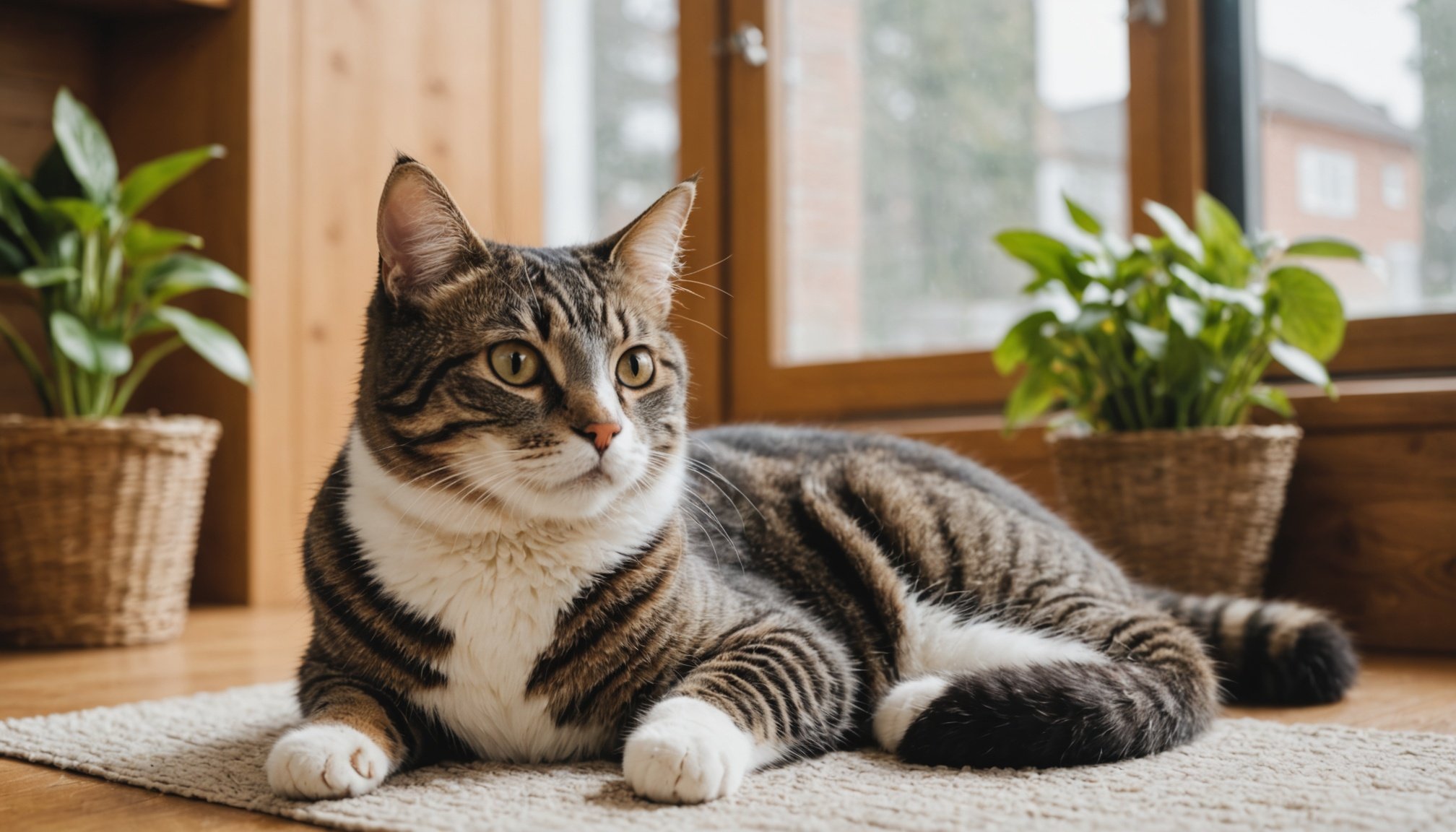Understanding the Importance of Solitude for Cats
Cats, as naturally independent creatures, derive psychological and emotional benefits from solitude. This alone time allows them to decompress and align with their instinctual behaviour, which is essential for feline well-being. Solitude offers cats the opportunity to process their environment without external stressors, contributing to their overall tranquility and contentment.
Recognising the common signs of stress and anxiety can help cat owners understand when their feline friends might need some alone time. Signs such as excessive grooming, hiding, or refusal to eat suggest a cat might be overwhelmed. Providing them with a safe, quiet space can mitigate these stress signals, allowing them to regain their balance and comfort.
Sujet a lire : Essential Guide: Safely Introducing Your Cat to a Newborn Baby at Home
Moreover, regular periods of solitude are vital to a cat’s overall health and happiness. When cats have access to retreat spaces, they can maintain a healthy stress level, resulting in a more sociable and interactive pet during communal times. Therefore, understanding and respecting a cat’s need for solitude not only honours their natural disposition but also ensures they remain part of a harmonious household. Emphasising these aspects creates an environment where your feline companion can thrive comfortably.
Designing Tranquil Spaces in Your Home
Creating tranquil environments for your feline friends involves more than placing a comfy cushion in the corner. It requires thoughtful planning to ensure a cat-friendly space that meets their needs for security and comfort.
A lire aussi : Essential Dietary Guidelines for Cats with Pancreatitis: A Step-by-Step Transition Guide
Identifying Ideal Locations for Peace
Selecting the right area for tranquility starts with considering the household dynamics. Cats appreciate quiet areas away from bustling household activities. Places like spare closets, home offices, or guest rooms can transform into serene havens, providing solace from constant noise and movement. These areas should be easily accessible, allowing your cat the freedom to come and go as they please without the disturbance of frequent foot traffic.
Choosing the Right Furniture
Incorporating appropriate cat furniture is vital. Multi-level structures not only cater to a cat’s natural instinct to climb but also offer possibilities for vertical exploration. Invest in sturdy shelves or towers that ensure stability. Such furniture allows for elevated resting spaces, enhancing a sense of safety while still being part of the room’s activity.
Incorporating Natural Elements
Natural elements like plants and abundant natural light elevate a cat’s environment. Select non-toxic, pet-safe plants to introduce a touch of nature and contribute to a calming atmosphere. While adhering to a budget, seek decor that subtly integrates tranquility, ensuring a peaceful retreat for your beloved pet.
Soundproofing and Environmental Control
Creating a peaceful atmosphere that encourages noise reduction for cats can bring substantial benefits to your pet’s well-being. Soundproofing techniques such as installing acoustic panels and laying down thick carpets are effective methods to minimise unwanted noise, potentially preventing stress for sensitive cats. These materials help absorb sound, creating a quieter, tranquil environment.
Another approach is the introduction of soothing background noise, such as white noise machines. White noise can harmoniously mask disruptive sounds that might occur in a lively home, like loud conversations or nearby traffic. By providing a consistent sonic environment, cats can remain calm and less reactive to sudden noise.
Additionally, monitoring household activities is a practical approach to ensure a quieter home atmosphere. Activities like vacuuming or moving furniture, can produce loud sounds that are jarring to your pets. Calming environments can help address these challenges. Consider scheduling specific “quiet times”, during which activities are planned with due consideration of their impact on noise levels.
These strategies collectively contribute to reduced stress in your feline friends, ensuring they feel safe and comfortable in their home environment. Tailoring soundproofing solutions to your living space not only improves your pet’s quality of life but enhances the overall harmony of your home.
Enrichment and Retreat Options
Cultivating an enriching environment for cats is vital for their wellbeing. Providing feline activities and ensuring a safe retreat are central elements in meeting their physical and emotional needs.
Building Retreat Zones
Creating dedicated retreat zones is essential. These zones should include secluded areas equipped with cozy beds and hiding spots. Utilizing cat trees and hideaways can promote relaxation, offering a comforting space for when solitude is desired. These setups not only provide comfort but also encourage a sense of security, making them ideal retreats worth incorporating.
Offering Interactive Engagement
Striking a balance between solitude and interactive engagement is crucial. Cats benefit from engaging toys and activities that stimulate their natural hunting behaviours. Incorporating such activities into their daily routine fosters mental stimulation. Establishing this routine provides both necessary solitude and enjoyable playtime, catering to their varied needs.
Monitoring and Adjusting Spaces
Being attuned to the feline responses to their environment is necessary for sustained wellbeing. Observation is key: by watching how your cat interacts with its surroundings, you can make informed temporary adjustments. Recommendations often include subtle changes to adjust to the cat’s behaviour and stress indicators, ensuring their environment remains a constant source of enrichment and comfort.













